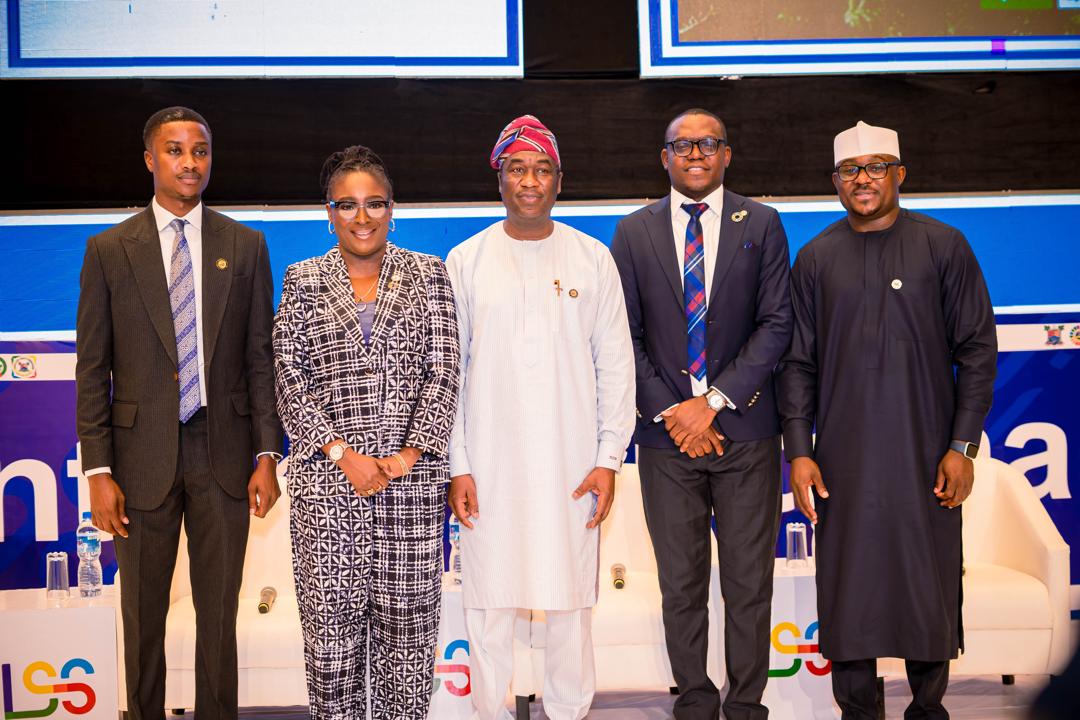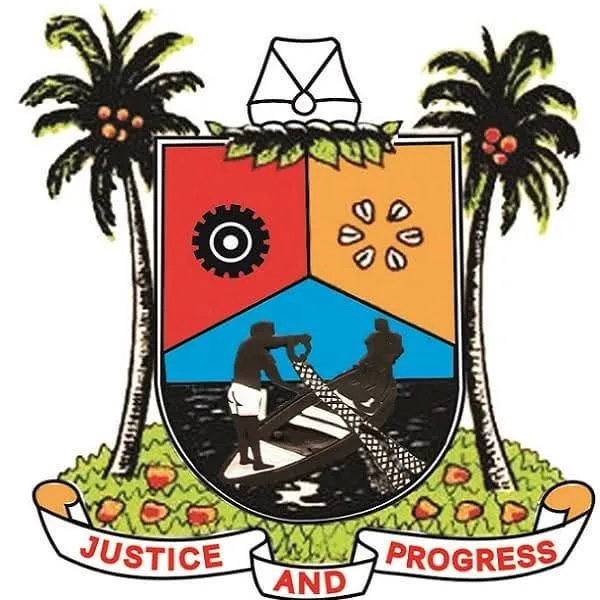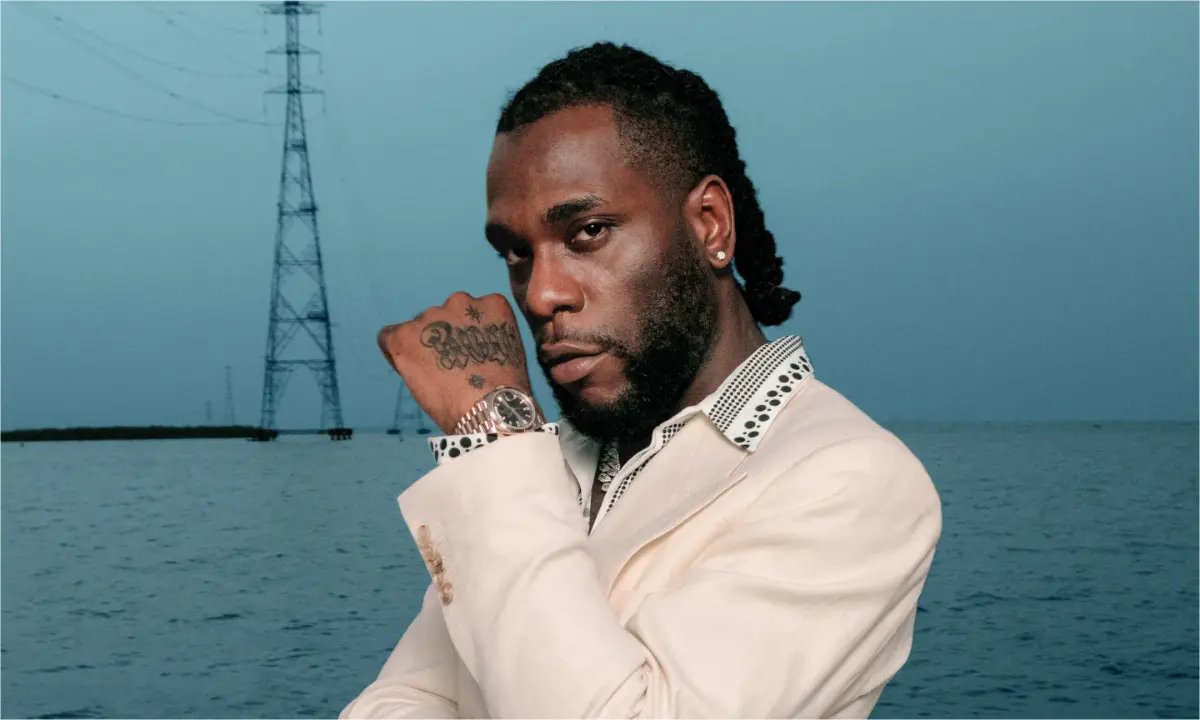.. Launch Carbon Registry
The Lagos State Governor, Mr. Babajide Sanwo-Olu, has stated that the government is adopting long-term policies and strategies to address ecological challenges that are threatening the environment and the well-being of residents.
The Governor stated this at the maiden sustainability summit, where he highlighted the critical need for proactive measures in the fight against climate change and emphasized the importance of sustainable practices in preserving the state’s natural resources.
Themed “Building a Resilient and Sustainable Lagos”, the multi-stakeholder summit which facilitated the exchange of innovative ideas and policies formulation in propelling Lagos toward a resilient and sustainable future was held at Eko Hotels and Suites, Victoria Island.
Sanwo-Olu who was represented by the Deputy Governor, Dr. Kadiri Obafemi Hamzat explained that the present administration is prioritizing innovative solutions to reduce environmental impact, improve energy efficiency, and promote green investments.
The Governor, who acknowledged the critical role of partnerships in driving the state’s sustainability agenda, pointed out that the state’s policies and initiatives will consistently reflect a balance between economic growth, environmental protection, and social inclusion, ensuring that sustainability becomes a core principle guiding all government actions and decisions.
“We are responding to today’s challenges and laying the foundations for a future where all Lagosians can flourish in a safe, inclusive, and vibrant city. Sustainability has always been central to our developmental agenda and Lagos State Development Plan (2022–2052) sets the framework for our long-term vision. At the heart of this plan is a commitment to using technology, innovation, and inclusive governance to build a city capable of adapting to an unpredictable future”, Sanwo-Olu noted.
Affirming that Lagos stands as a global leader in sustainability and joining the ranks of C40 cities that are committed to science-based, collaborative climate action, the Governor stated that the state is working across borders to address global challenges such as pollution, climate change, and biodiversity loss.
As one of the fastest-growing cities in the world, Lagos faces unique challenges and extraordinary opportunities. Our city’s sustainability efforts are not just local; they are part of a broader global mission to protect people and the planet.
“We have continued to integrate sustainable practices into all aspects of governance, from infrastructure development to public services. In 2021, Lagos became the first sub-national government to activate the $1 trillion Nigerian Green Bond Market Development Program, paving the way for sustainable finance in urban development”, the Governor submitted.
As part of the summit’s activities, the Governor launched Lagos Carbon Footprint Registry, a groundbreaking initiative aimed at measuring and reducing the state’s carbon emissions. This initiative marks a significant step towards achieving the state’s goal of carbon neutrality by 2050. The project will involve comprehensive data collection across various sectors, including transportation, energy, and waste management, to identify the primary sources of emissions.
Governor Sanwo-Olu noted that this data-driven approach would guide policy decisions and encourage businesses and residents to adopt eco-friendly practices. He further expressed confidence that with collective efforts, Lagos can set a benchmark for sustainable urban development in Nigeria and across Africa.
In her welcome address, the Special Adviser to the Governor on SDGs, Dr. Oreoluwa Finnih explained that the commitment of the government is demonstrated through integrated policies, strategic partnerships, and concerted efforts.
She said the Office of SDGs has evolved to lead as the principal SDGs coordinator in Lagos, championing initiatives that accelerate the attainment of the Global Goals through strategic partnerships, innovative programs, and impactful policies.
Reeling out some of the initiatives currently underway, Dr. Finnih highlighted the OSDG Lighthouse Project, which is targeted at improving the livelihoods of thousands of Lagosians in hard-to-reach or underserved communities by providing access to essential services and opportunities.
Additionally, she mentioned the Lagos Minds Project, an initiative geared towards enhancing the mental well-being of the state’s young population through comprehensive support systems, mental health education, and community engagement. These initiatives underscore the Office’s commitment to fostering a more equitable and resilient society in Lagos.
The Special Adviser confirmed that the Office is currently building a comprehensive data repository to support evidence-based decision-making with extensive monitoring and evaluation structure across the public and private sectors to compare baseline and target outcomes.
“We must realise that partnerships rooted in a shared sense of responsibility will ensure that no one is left behind. We encourage stakeholders – private and public bodies, business leaders, and civil society organisations – to pursue meaningful and strategic partnerships that conform with the sustainability goals. Stakeholders must attune their CSR projects to the needs of underserved communities where the impact would be felt the most”, she stated.
Delivering his keynote address on “Building a Sustainable Future: Aligning Financial Strategies with SDGs to Foster Long-term Sustainability,” the Executive Secretary/CEO of the Financial Reporting Council of Nigeria, Dr. Rabiu Olowo, confirmed that the summit underscores Lagos State Government’s leadership in advancing sustainability practices as Nigeria moves towards the adoption of the International Sustainability Reporting Standards. He commended the state’s proactive stance in integrating these global standards into local financial and governance strategies.
While acknowledging that mega cities across the world are prioritizing resilient economies to foster long-term sustainability, the Executive Secretary affirmed that Lagos State’s approach to sustainability is both innovative and comprehensive.
He highlighted how the state’s efforts are not only aligned with international best practices but also tailored to address the unique challenges and opportunities of Lagos, positioning the city as a leader in sustainable urban development in Africa.
On the need for the government to align financial strategies with SDGs, Olowo emphasised that embedding the SDGs into the state’s financial frameworks will attract sustainable investments, support inclusive growth and ensure economic progress.
The high-level engagement featured panel sessions where panelists provided insight into issues on “Building an Effective Carbon in Nigeria and Aligning Corporate ESGGoals with Lagos State’s Sustainable Development Plans”.
In attendance at the Summit are the federal and state functionaries, Consular Generals, Development partners, members of the organised private sector, civil society organizations, non governmental organisations among other notable personalities.





